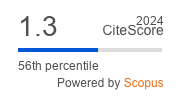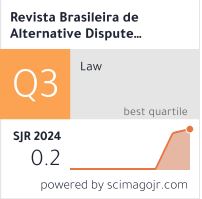Publisher
Submissions
Submission Preparation Checklist
As part of the submission process, authors are required to check off their submission's compliance with all of the following items, and submissions may be returned to authors that do not adhere to these guidelines.- The author or one of the coauthors holds a doctorate title.
- The article archive has been entirely anonymized. There is no mention of authors in the body text or footnotes, and the file properties have been changed to remove authorship information.
- The original and unpublished contribution is not being evaluated for publication by another journal; otherwise, it must be justified in "Comments to the editor."
- The submission file is in Microsoft Word, OpenOffice or RTF format.
- URLs for references were provided when possible.
- The text is single-spaced, uses a 12-point font, employs italics instead of underlining (except in URL addresses), and Figures and tables are inserted in the text, not at the end of the document in the form of attachments.
- The text follows the style standards (footnotes) and bibliographic requirements described in the Guidelines for Authors on the About the Journal page.
- All authors have ORCID identification, which can be done at https://orcid.org/.
Artigos
Política padrão de seçãoCopyright Notice
The journal or the publisher will owe no copyright fees or other payments for publishing the papers. The author will receive a complimentary copy of the published article. The opinions expressed by the authors of the articles and reviews are their own and do not reflect the views of the journal or publisher.
Creative Commons
|
All articles published by the International Journal of Law in Changing World are licensed under the Creative Commons Attribution 4.0 International License. This permits anyone to copy, redistribute, remix, transmit and adapt the work provided the original work and source are appropriately cited. |
Privacy Statement
The names and addresses informed in this journal will be used exclusively for the services provided by this publication. They will not be made available for other purposes or to third parties.








